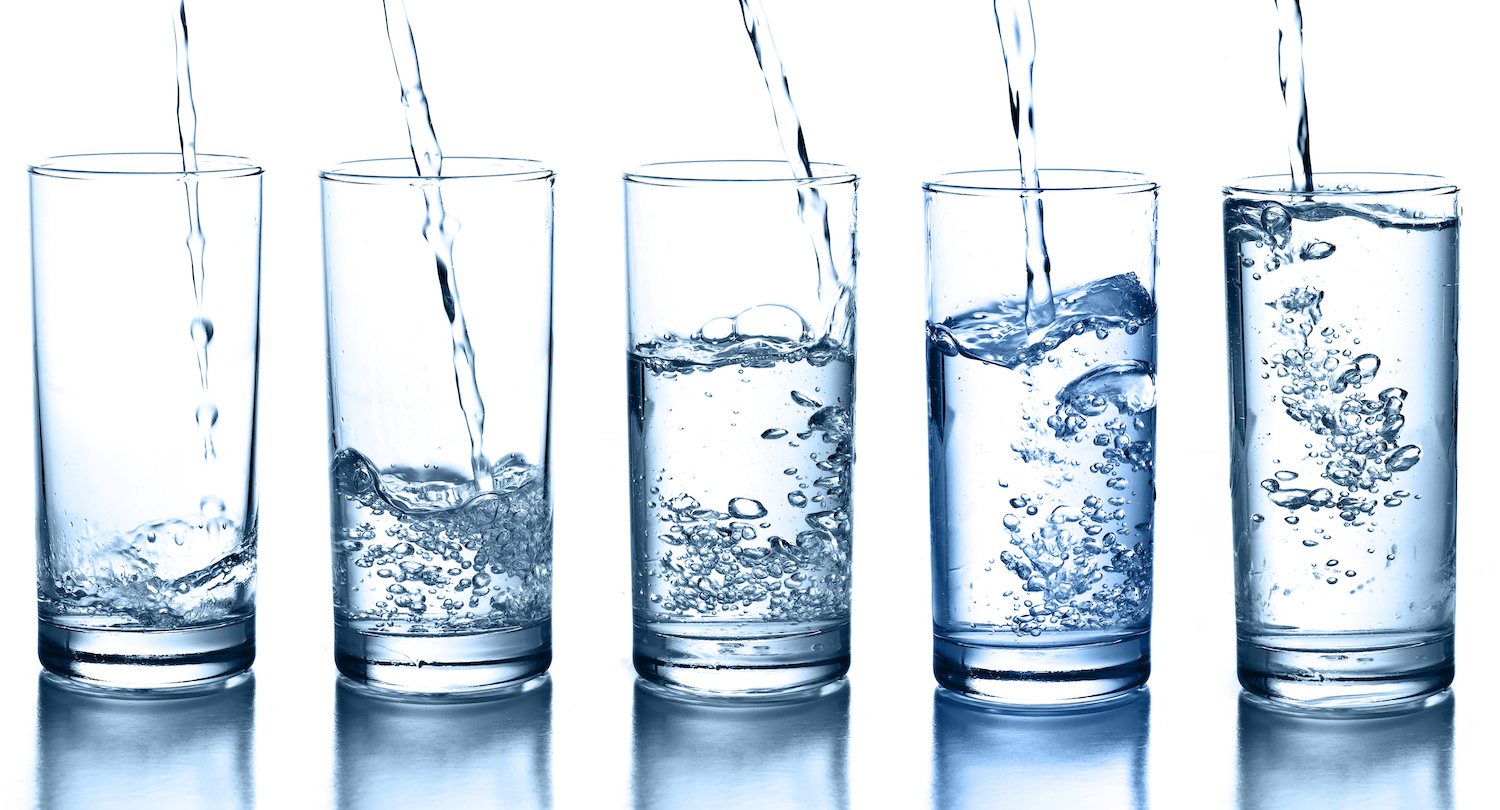
Does drinking a lot of water and staying well hydrated help with keeping blood sugar levels at a more normal level?
This is probably one of the simplest questions to answer, but one of the most important ones: YES!
Whenever blood sugars are high, they need a lot of water to leave via the kidneys: a ratio of 6 molecules of water for every molecule of sugar. If this is not being drunk, then the body cells get “drunk”; and dehydration sets in.
If you are concerned about blood glucose, proper hydration should be a top priority.
When you are dehydrated, your body produces a hormone called vasopressin. Vasopressin causes your kidneys to retain water and also prompts your liver to produce more blood sugar, which can lead to elevated blood-glucose levels. Over time, this effect may lead to insulin resistance, which is when your cells stop responding well to insulin. Insulin resistance ultimately leads to the diagnosis of type 2 diabetes (where we see elevated blood sugar).
There was a study published in the journal “Diabetes” that specifically studied diabetes and hydration status. The study followed 3,615 adults over a span of nine years and found that those who drank the greatest amount of water were the least likely to develop hyperglycemia, while those who drank the least amount of water were the most likely to develop hyperglycemia.
Although more studies are needed to confirm this effect, dehydration may eventually
lead to chronic hyperglycemia, or high blood glucose, which can turn into type 2 diabetes.
It is clear that blood sugars are closer to desired levels when you are well-hydrated, along with eating a low glycemic food intake, staying active, and seeking out ways to manage daily stress in our nervous society.
Water is important for your health in so many ways–it helps your skin, improves your energy, assists metabolism, assists in the elimination of waste products, regulates body temperature, lubricates joints, etc. Since it also helps to maintain a healthy blood sugar level, why wouldn’t you want to stay well-hydrated??
To stay well-hydrated, the general consensus is to drink between 1/2-1 ounce of water for every pound that you weigh. If you multiply your weight by 2/3 and drink that much water in ounces per day, you will be well-hydrated! Ex. Weight 150 pounds. 2/3 x 150 = 100. Drink 100 ounces of water each day. If you sweat you are expelling water and you will want to replace it. Add 12 ounces of water to your daily intake for every 30 minutes of workout that results in sweating. (Add electrolytes too when you sweat)
By the time you are thirsty, your body is dehydrated. Plan ahead and drink water throughout the day. Have a way to measure it to keep you on track.Signs that you could be dehyrated are: dark urine (other than the first morning urine), headaches, feeling tired, dry mouth, urinating infrequently, etc.
Water is the best way to hydrate your body. Coffee and teas do have water but excess caffeine can increase urination and increase your chance of dehydration. A few cups of coffee or tea per day can count towards your water intake.
It may feel that there are too many things to do in order to have a healthy blood sugar. The best thing to do is to “peck away” at them one at a time. That is what it takes for creating a personal program of success. Why not start with ensuring that you drink enough water each day? It is a simple place to start. Happy drinking!
IRIDOLOGY
Iridology can tell us about your predisposition to blood sugar level issues.
Iris analysis is based on the markings, fiber structures, pigmentations and
color variations in the iris. Iridology is a wonderful tool to use to find out
what your health level is and what you need to do to prevent problems in
the future. An iridology exam is painless and only takes an hour to give you a lot of information about your health. As an iridologist, I offer personalized Iridology consultations by appointment.